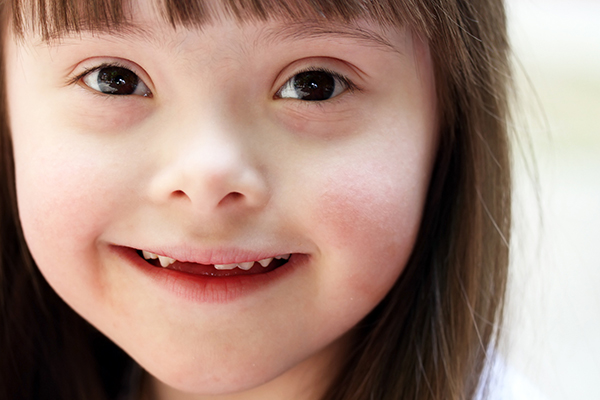LADDER Lab: Research
Department of Psychological and Brain Sciences

Drexel LADDER Lab is an educational neuropsychology research lab focused on learning and developmental disabilities. Our lab aims to augment knowledge about the causes and correlates of neurodevelopmental disorders through the conduct of both clinical and translational research. By using innovative neuropsychological and neuroimaging technologies, we seek to identify novel targets of treatment for the amelioration of the cognitive weaknesses that characterize intellectual disability and other neurodevelopmental disorders.
Embracing the values of scientific rigor and integrity, we aspire to improve developmental outcomes and quality of life for individuals with neurodevelopmental disorders and their families. Moreover, through the provision of experiential learning opportunities, we are committed to training the next generation of psychologists who will continue our efforts both in the laboratory and the clinic to provide families with tools to optimize outcomes and well-being for individuals with neurodevelopmental disorders.
Explore Our Published Work
* Student author | # Co-first authors
- Csumitta KD, Gotts SJ, Clasen LS, Martin A, Raitano Lee N. Youth with Down syndrome display widespread increased functional connectivity during rest. Sci Rep. 2022 Jun 14;12(1):9836. doi: 10.1038/s41598-022-13437-1. PMID: 35701489; PMCID: PMC9198034. https://pubmed.ncbi.nlm.nih.gov/35701489/
- Lee NR, Nayak A, Irfanoglu MO, Sadeghi N, Stoodley CJ, Adeyemi E, Clasen LS, Pierpaoli C. Hypoplasia of cerebellar afferent networks in Down syndrome revealed by DTI-driven tensor based morphometry. Sci Rep. 2020 Mar 25;10(1):5447. doi: 10.1038/s41598-020-61799-1. PMID: 32214129; PMCID: PMC7096514. https://pubmed.ncbi.nlm.nih.gov/32214129/
- Hamner, T*, Udhnani, MD, Osipowicz, KZ, Lee, NR (2018) Pediatric brain development in Down syndrome: A field in its infancy. Journal for the International Neuropsychological Society. 24(9). https://pubmed.ncbi.nlm.nih.gov/29789029/
- Lee, N.R., Adeyemi, E.I., Lin, A., Clasen, L.S., Lalonde, F., Condon, E., Driver, D., Shaw, P., Gogtay, N., Raznahan, A., Giedd, J.N. (2016). Dissociations in Cortical Morphometry in Youth with Down Syndrome: Evidence for Reduced Surface Area but Increased Thickness. Cerebral Cortex, 26, 2982-90. https://pubmed.ncbi.nlm.nih.gov/26088974/
- Lee NR, Niu X, Zhang F, Clasen LS, Kozel BA, Smith ACM, Wallace GL, Raznahan A. Variegation of autism related traits across seven neurogenetic disorders. Transl Psychiatry. 2022 Apr 7;12(1):149. doi: 10.1038/s41398-022-01895-0. PMID: 35393403; PMCID: PMC8989950. https://pubmed.ncbi.nlm.nih.gov/35393403/
- Stephan C, Clasen L, Adeyemi E, Lee NR. Speech Impairments Explain Unique Variance in Adaptive Behavior Skills in Young People With Down Syndrome. Am J Speech Lang Pathol. 2021 Jan 27;30(1):253-259. doi: 10.1044/2020_AJSLP-20-00054. Epub 2020 Nov 16. PMID: 33197320; PMCID: PMC8740564. https://pubmed.ncbi.nlm.nih.gov/33197320/
- Udhnani M, Perez M, Clasen LS, Adeyemi E, Lee NR. Relations between Everyday Executive Functioning and Language in Youth with Down Syndrome and Youth with Autism Spectrum Disorder. Dev Neuropsychol. 2020 Mar-Apr;45(2):79-93. doi: 10.1080/87565641.2019.1706518. Epub 2020 Feb 16. PMID: 32063028; PMCID: PMC7549751. https://pubmed.ncbi.nlm.nih.gov/32063028/
- Godfrey, M.*, Hepburn, S., Fidler, D., Tapera, T., Zhang, F., Robinson, C., Lee, N.R. (2019). Autism spectrum disorder (ASD) symptom profiles of children with comorbid Down syndrome (DS) and ASD: A comparison with children with DS-only and ASD-only. Research in Developmental Disabilities, 89, 83-93. https://pubmed.ncbi.nlm.nih.gov/30959431/
- Vivanti, G, Hamner, T*, & Lee, NR (2018). Neurodevelopmental Disorders Affecting Sociability: Recent Research Advances and Future Directions in Autism Spectrum Disorder and Williams Syndrome. Current neurology and neuroscience reports, 18(12). https://pubmed.ncbi.nlm.nih.gov/30328520/
- Csumitta KD, Stephan CM, LaQuaglia RI, Miller E, Lee NR. Updated profiles of everyday executive function in youth with Down syndrome using the BRIEF-2. J Intellect Disabil Res. 2022 Jan;66(1-2):68-80. doi: 10.1111/jir.12879. Epub 2021 Sep 22. PMID: 34549846. https://pubmed.ncbi.nlm.nih.gov/34549846/
- Udhnani, M.*#/Maiman, M.*#, Blumenthal., J., Clasen, L., Wallace, G., Giedd., J., Raznahan, A., & Lee, N.R. (2018). Phonemic and Semantic Verbal Fluency in Sex Chromosome Aneuploidy: Contrasting the Effects of Supernumerary X vs. Y Chromosomes on Performance. Journal of the International Neuropsychological Society, 24(9), 917-927. https://pubmed.ncbi.nlm.nih.gov/30375320/
- Lee, N.R., Anand, P., Will, E., Adeyemi, E.I., Clasen, L., Blumenthal, J., Giedd, J.N., Daunhauer, L.A., Fidler, D., Edgin, J.O. (2015). Everyday executive functions in Down syndrome from early childhood to young adulthood: Evidence for both unique and shared characteristics compared to youth with sex chromosome trisomy (XXX and XXY). Frontiers in Behavioral Neuroscience, 9, 264. https://pubmed.ncbi.nlm.nih.gov/26539087/
- Godfrey, M.*, Udhnani, M.*, & Lee, N. R. (2019). A case report of the neurocognitive and behavioral phenotype of mosaic trisomy 14. Neurocase, 1-5. https://pubmed.ncbi.nlm.nih.gov/30714851/
- Godfrey, M.* & Lee, N.R. (2018). Memory Profiles in Down Syndrome Across Development: A review of memory abilities through the lifespan. Journal of Neurodevelopmental Disorders, 10(5), 1-31. https://psycnet.apa.org/record/2018-04236-001
- Lee, N.R., Maiman, M.*, Godfrey, M.* (2016). What can neuropsychology teach us about intellectual disability?: Searching for commonalities in the memory and executive function profiles associated with Down, Williams, and Fragile X syndromes. International Review of Developmental Disabilities Research, 51, 1–40. https://www.sciencedirect.com/science/article/abs/pii/S2211609516300136
Contact Us
Nancy Raitano Lee, PhD
Associate Professor of Psychology
nrl39@drexel.edu
Research Coordinator
ladder_lab@drexel.edu, 215.553.7164
Active Research Studies
The Ladder Lab is actively engaged in the following research studies. Study participants complete one-on-one testing while wearing a simple headband that measures brain function. Family members complete questionnaires about children and young adults regarding behavior and thinking skills. Please click on a picture below to learn more about each study.
WATCH: Brain and Sleep Study Overview
fNIRS as an outcome measure of the prefrontal hemodynamic response in Down syndrome | NIH – 5R21HD100997-027
We received a grant from the National Institutes of Health (NIH – 5R21HD100997-027) to study brain function and how it varies as a function of sleep quality in children with Down syndrome. The proposed research aims to test the use of a patient-friendly neuroimaging technology called functional near infrared spectroscopy (fNIRS) with children with Down syndrome to determine if it can be used to measure the efficacy of treatments aimed at improving cognition and sleep in this group. This research also seeks to understand how sleep influences brain function in children with Down syndrome and those with typical development. Thus, the proposed research has implications for informing efforts to improve health and well-being for individuals with Down syndrome and those in the general population with sleep disturbance.